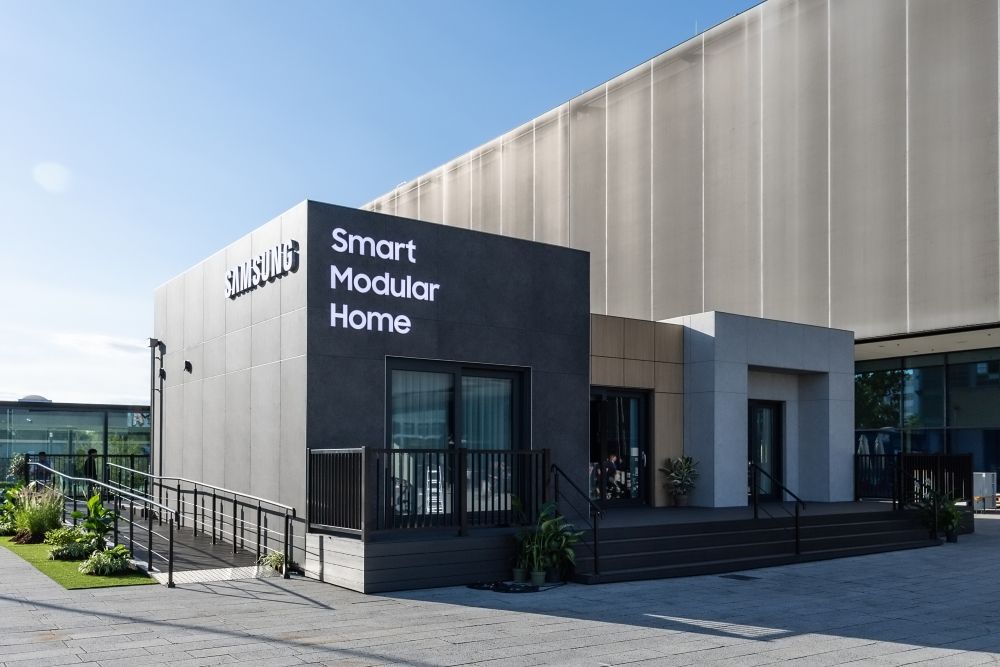Samsung just unveiled its Smart Modular Home at IFA 2025, marking the company's boldest push yet into AI-powered residential spaces. The fully integrated solution combines AI-enabled appliances with high-efficiency HVAC systems through Samsung's SmartThings platform, targeting global B2B markets as modular housing demand surges worldwide.
Samsung just dropped its most ambitious smart home vision yet at IFA 2025 in Berlin. The company's new Smart Modular Home represents a complete rethink of residential AI integration, packaging everything from intelligent appliances to adaptive HVAC systems into prefabricated modules that can be deployed anywhere. The timing couldn't be better as the global modular construction market surges toward $174 billion by 2030, driven by housing shortages and sustainability demands. Walking through the demonstration home at IFA reveals how Samsung's SmartThings ecosystem has evolved beyond simple device connectivity into something resembling a residential operating system. A wall-mounted 3D Map View panel greets visitors at the entrance, displaying real-time status updates from every connected device throughout the home. The system knows when you're arriving thanks to the smart door lock integration, automatically adjusting lighting, opening curtains, and setting the air conditioning to your preferred temperature before you even step inside. What sets this apart from typical smart home setups is the seamless orchestration. According to Samsung's demonstration, the robot vacuum completes its cleaning cycle and returns to its charging station precisely as residents enter, while the SmartThings Energy system schedules washing machines and dishwashers to run during off-peak electricity hours. The energy management capabilities showcase real practical value. SmartThings Energy displays current usage and projected monthly costs at a glance, with Optimal Scheduling automatically shifting appliance operations away from peak pricing periods. In European markets where time-of-use pricing is standard, early testing shows households can reduce electricity bills by 15-20% through automated load shifting. The system even charges the robot vacuum incrementally during the day, completing the full cycle overnight when rates drop. Samsung's EHS heat pump solutions handle underfloor heating, cooling, and hot water throughout the modular structure. Future Smart Modular Home complexes will integrate SmartThings Pro for centralized HVAC management across multiple units, potentially revolutionizing how property managers optimize energy efficiency at scale. The gaming integration reveals broader vision for adaptive spaces. Launching Game Mode through the SmartThings app transforms the multipurpose room into an immersive entertainment environment, automatically dimming ceiling lights, closing curtains, and syncing LED strips with game visuals and audio rhythms. The air conditioning adjusts to maintain optimal comfort during extended gaming sessions. This represents a fundamental shift from static home environments to spaces that actively adapt to activities and preferences. Industry analysts see significant opportunity in the B2B modular market, particularly as urban housing crises intensify globally. "Samsung's approach combines established SmartThings technology with modular construction trends that are already reshaping residential development," notes . The company's focus on B2B deployment makes strategic sense given the complexity of retrofitting existing homes with comprehensive IoT systems. Modular construction allows Samsung to integrate its technology from the foundation up, ensuring optimal performance and reliability that's difficult to achieve in traditional retrofits. The Smart Video Management System developed by S-1 Corporation adds enterprise-grade security monitoring, automatically detecting and alerting to abnormal situations including fires, falls, or intrusions. This level of comprehensive monitoring typically requires professional installation and maintenance, making the B2B modular approach more viable than consumer DIY implementations. hasn't disclosed pricing for the Smart Modular Home system, though industry sources suggest initial deployments will target corporate housing, hospitality, and residential development projects rather than individual consumers. The company's established relationships with construction firms through its building automation division provide natural distribution channels for scaling the technology. The demonstration at IFA 2025 positions ahead of competitors like Nest and Alexa in the race to define the next generation of smart residential spaces. While those platforms focus on retrofitting existing homes with connected devices, Samsung's modular approach enables deeper integration and more sophisticated automation capabilities from day one.












